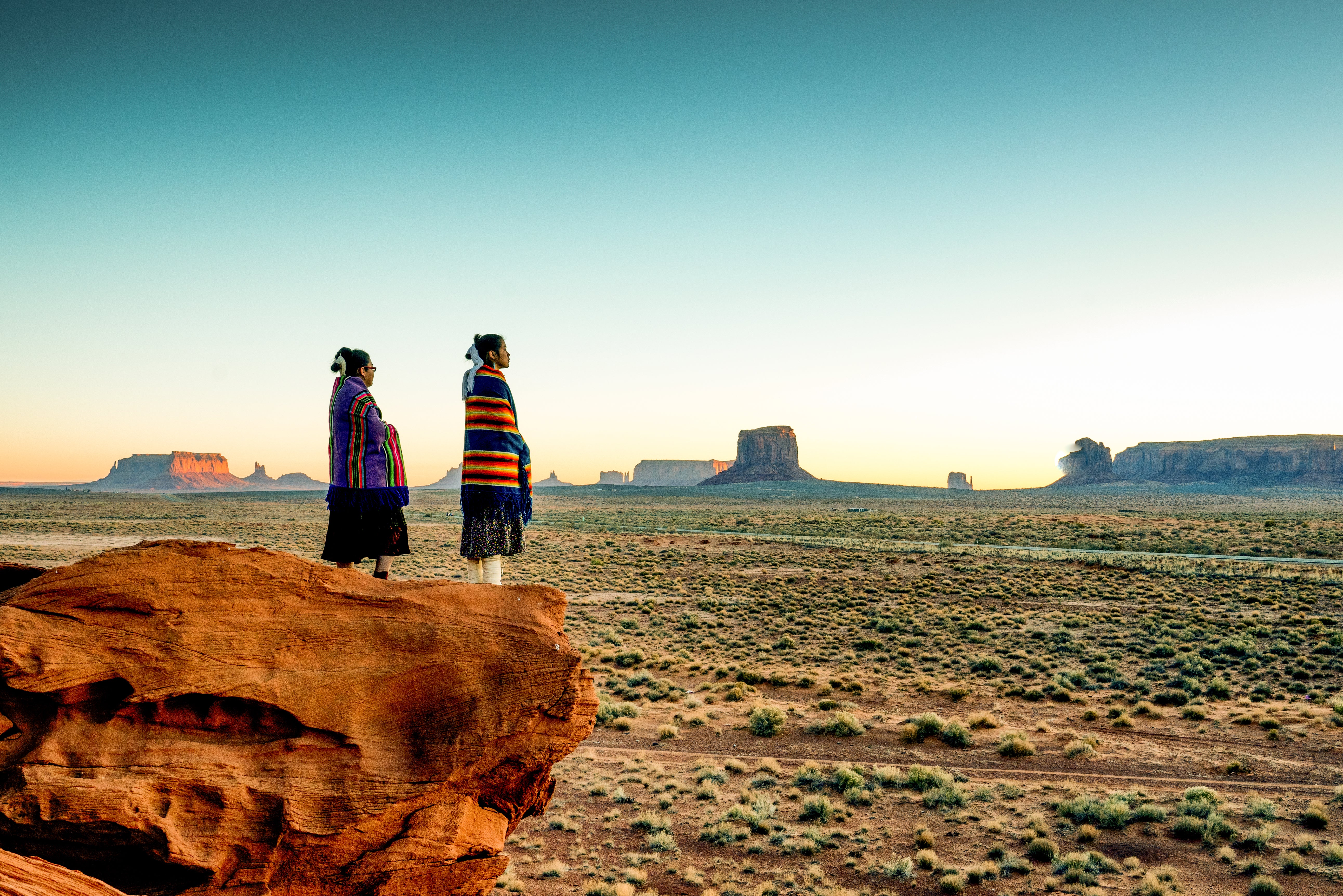Anthropology Association Apologizes to Native Americans for the Field's Legacy of Harm [View all]
For decades anthropologists exploited Indigenous peoples in the name of science. Now they are reckoning with that history
By Rachel Parsons on March 28, 2022

Navajo sisters look out over Monument Valley. Credit: grandriver/Getty Images
In 1901 the soon to be first president of the American Anthropological Association wrote that “through observation of a typical [Native American] tribe,” it was clear that “the savage stands strikingly close to sub-human species in every aspect.” An outgrowth of the pseudoscientific theory of racial and cultural hierarchy, William McGee’s words in American Anthropologist, anthropology’s flagship academic journal, echoed racist 19th-century views that justified mistreatment of Indigenous communities and propped up arguments for eugenics. In the decades that followed, anthropologists continued to support racist agendas, appropriate cultural knowledge, and steal material objects and human remains belonging to Indigenous peoples throughout the Americas in the name of scientific research. In November 2021 the American Anthropological Association (AAA) apologized for the field’s legacy of harm.
Anthropology as an academic field evolved out of the burgeoning subject of sociology in Europe in the 19th century, focusing on small-scale cultural groups in Africa, Asia and the Americas. In the U.S., anthropology and its subfields—including archaeology and linguistic anthropology—were grounded in the study of Native American communities. In its apology, the AAA pointed to the discipline’s “record of extractive research,” noting that, taken as a whole, this record constituted an “abusive relationship” in which anthropologists declared themselves “experts” and built their scholarly reputations by privileging their version of Indigenous knowledge over that of Indigenous communities themselves.
Vernon Finley, director of the Kootenai Culture Committee, grew up observing his grandfather’s interactions with the “onslaught of anthropologists” who came to record Kootenai tribal elders’ stories. Researchers nearly always interpreted them incorrectly, Finley recalls. Furthermore, elders were never told what the visitors intended to do with this information. “They thought it was purely for this person’s interest in knowing and interest in improving their life. They didn’t know it had to do with advancing their career,” he says.
Through a 21st-century lens, even those anthropologists with good intentions frequently contributed to the damage. In the early 20th century Franz Boas famously worked to debunk the racial hierarchy myth and promoted equal civil rights for Native Americans. But as a curator, he helped populate the American Museum of Natural History in New York City with the belongings, human remains and funerary objects of the tribes he advocated for. The looting was sometimes a condition of keeping his funding for fieldwork.
More:
https://www.scientificamerican.com/article/anthropology-association-apologizes-to-native-americans-for-the-fields-legacy-of-harm/
